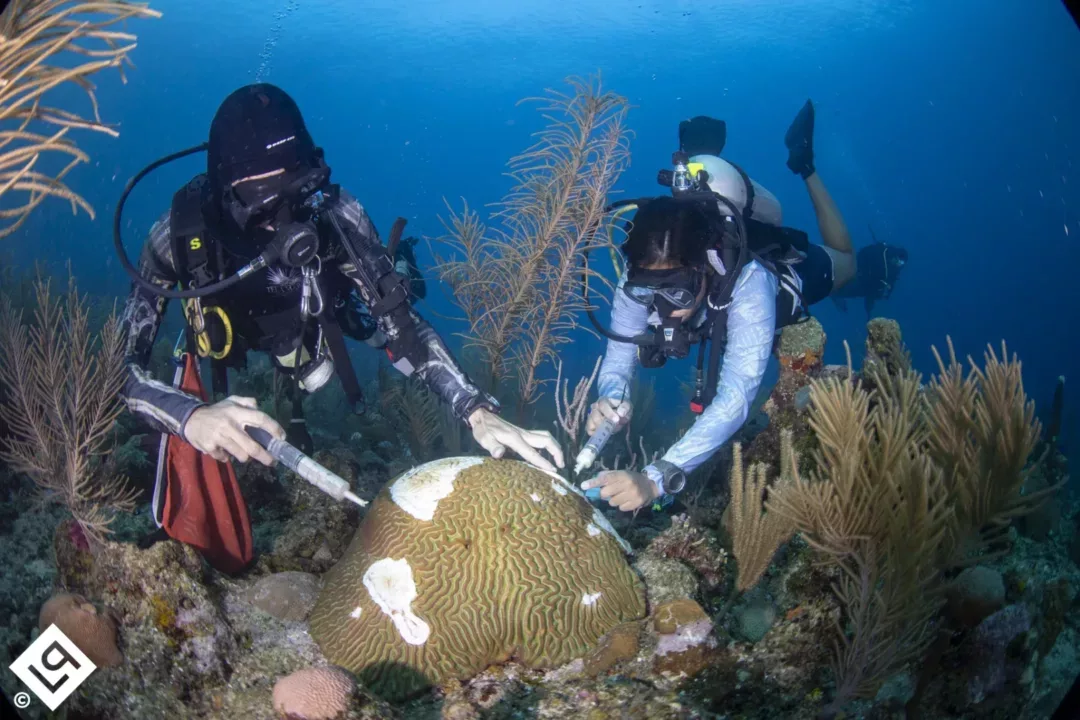As more managers face the threat of stony coral tissue loss disease in the Caribbean region, MPAConnect has created a series of short videos that share practical coral disease management experience.
Intended as a resource for marine natural resource managers, the video series addresses how to monitor for stony coral tissue loss disease, how to document its occurrence, how divers and fishers can help to prevent its spread and how to prepare and apply the most effective treatment method.
Developed in collaboration with managers from the MPAConnect network who have now gained valuable experience in dealing with stony coral tissue loss disease, the videos feature Caribbean footage of the disease and share practical lessons learned to date. They also highlight tips based on input from relevant experts.
“Stony coral tissue loss disease continues to spread around the region and we’ve been receiving many requests for guidance from managers. In response to this, we’ve compiled knowledge about best practices and presented it in an easy-to-watch video format,” explained Emma Doyle, MPAConnect Coordinator.
The videos can be found on the Gulf and Caribbean Fisheries Institute’s YouTube channel. The series is made possible with support from NOAA’s Coral Reef Conservation Program and through the involvement of mentors in the MPAConnect network – the Turks & Caicos Reef Fund, Roatan Marine Park, STENAPA, and the Florida Keys National Marine Sanctuary as well as experts from Nova Southeastern University, Ocean Alchemists and the Atlantic and Gulf Rapid Reef Assessment Program.
Available online now:
- How to document stony coral tissue loss disease;
- How to treat corals affected by stony coral tissue loss disease;
- How divers can help to prevent stony coral tissue loss disease; and
- How fishers can help to prevent stony coral tissue loss disease.
Upcoming videos in the series include how to monitor for SCTLD via roving diver surveys and how to prepare the treatment for SCTLD. For more information or to provide feedback please contact [email protected].

